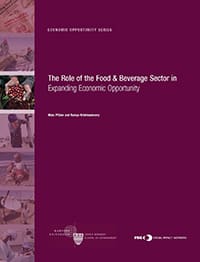In developing countries, where agriculture dominates all other economic sectors, the majority of workers supporting the food and beverage industry cannot satisfy their immediate consumption needs and earn sufficient income to improve their lives. A handful of pioneering firms are breaking this dilemma and building economic opportunity around food and beverage value chains in ways that support future business growth.
Top Takeaways
- Major food and beverage firms are concerned about maintaining access to quality ingredients. Global consumers are increasingly willing to pay premiums for safe, organic, and sustainable products. In this equation lies the opportunity for large companies to anticipate the needs of consumers, improve lives, and mitigate their environmental footprints.
- Pioneering food and beverage firms are partnering with non-profits and public institutions to expand economic opportunities in developing countries at three levels: creating business models that involve the poor as entrepreneurs, suppliers, retailers, customers; building the poor’s human and physical capital to enable them to participate in these models; and tackling institutional and policy barriers to enhance feasibility and impact.
- These companies are applying five best practice ingredients in their interventions: collaborating across sectors to raise awareness of opportunities; leveraging “patient capital” funding when competitive returns are not immediately available; planning with economic and environmental sustainability in mind; balancing globally and locally focused approaches to economic opportunity creation; and designing for scale and replication to increase impact.
Nestlé

